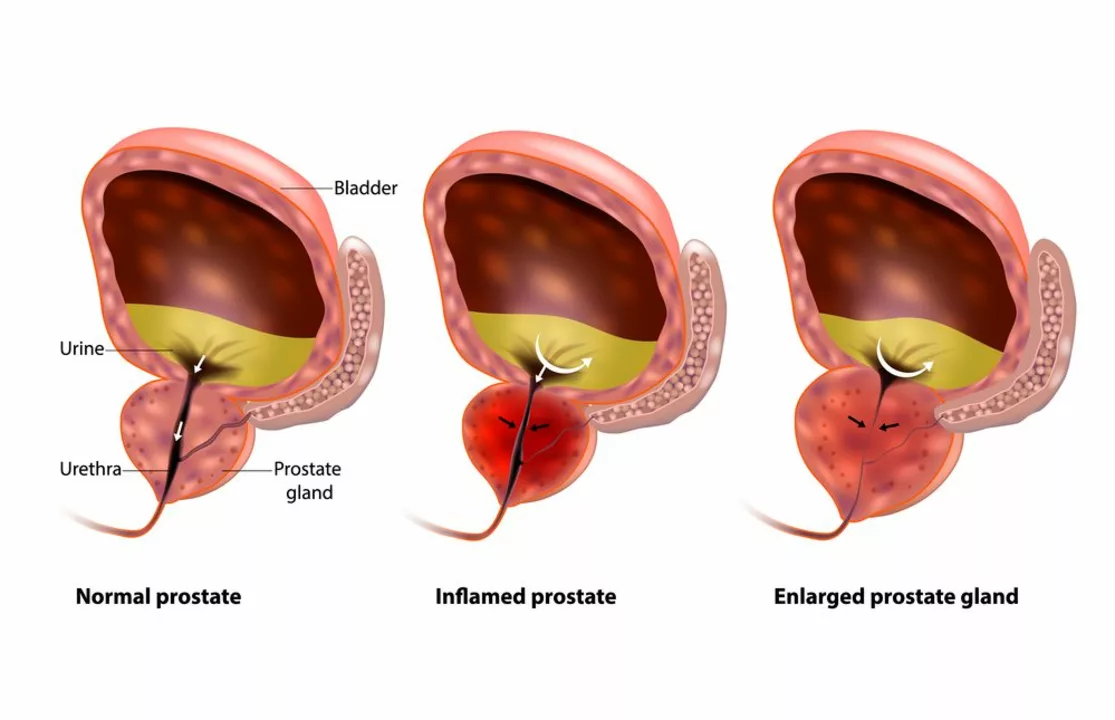Alfuzosin: What it does and how to use it
Alfuzosin is an alpha‑1 blocker doctors prescribe to ease urinary symptoms from an enlarged prostate (BPH). It relaxes the muscles in the prostate and bladder neck so urine can flow more easily. People often notice less straining, weaker urgency, and fewer bathroom trips at night.
This is not a cure for prostate growth — it helps symptoms. Results can show up in days to weeks, but full benefit may take a few weeks. If you don’t feel better after a month or your symptoms get worse, check with your prescriber.
How to take alfuzosin safely
Most people take alfuzosin once daily as an extended‑release tablet, usually 10 mg. Take it after the same meal every day — food helps steady the amount your body absorbs and lowers the chance of dizziness. Don’t crush or chew the tablet; swallow whole.
Start cautiously if you’re older or on other blood‑pressure drugs. Alfuzosin can lower blood pressure, especially when you stand up quickly. Sit or lie down if you feel faint. Avoid driving or heavy machinery until you know how it affects you.
Side effects and interactions to watch for
Common side effects include dizziness, headache, tiredness, and sometimes mild stomach upset. Sexual side effects like changes in ejaculation can happen but are less common than with some other prostate drugs. If you faint or have signs of a serious reaction, seek medical help right away.
Alfuzosin is broken down by liver enzymes (CYP3A4). Avoid strong CYP3A4 inhibitors such as ketoconazole or ritonavir unless your doctor says it’s okay. Grapefruit and grapefruit juice may raise its levels and should be avoided. Mixing alfuzosin with erectile dysfunction drugs or other blood‑pressure medications can increase the risk of low blood pressure — check with your provider first.
Tell your doctor about liver problems, heart rhythm issues, or if you’re on medicines that affect liver enzymes. Also mention any planned eye surgery; alpha‑blockers can affect some eye procedures and your surgeon should know.
Missed dose? Take it when you remember the same day. If it’s nearly time for the next dose, skip the missed one. Don’t double up.
Want alternatives or more info? Talk to your doctor about other options like different alpha blockers, 5‑alpha‑reductase inhibitors, or combination therapy — choice depends on your symptoms, prostate size, and other health issues.
Keep routine follow‑ups so your clinician can check symptom relief, blood pressure, and side effects. If you have any worrying signs — fainting, severe dizziness, or allergic reactions — get help right away.
Questions about dosing, interactions, or whether alfuzosin is right for you? Ask your pharmacist or prescriber — they can give advice based on your other meds and health history.
How to Manage BPH-Related Pain with Alfuzosin
As someone who has experienced BPH-related pain, I've found relief through the use of Alfuzosin. This medication works by relaxing the muscles in the prostate and bladder neck, making it easier to urinate and reducing discomfort. It's important to follow your doctor's prescription and take the medication as directed to ensure the best results. Personally, I've noticed a significant improvement in my symptoms and overall quality of life since starting Alfuzosin. If you're struggling with BPH-related pain, I recommend discussing this treatment option with your healthcare provider.
View more
